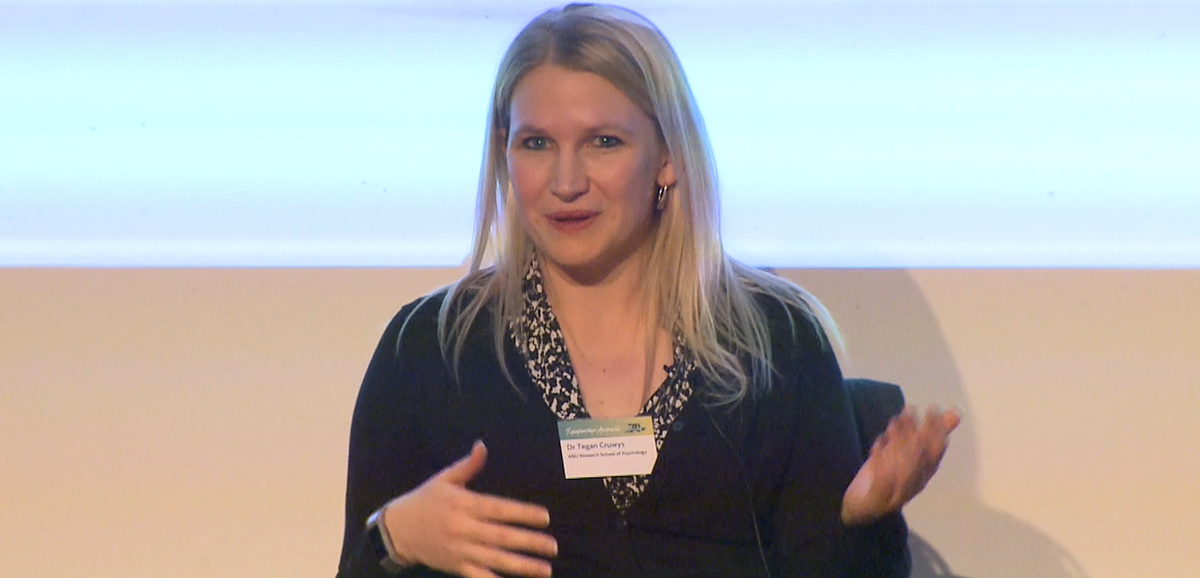
By Dr Tegan Cruwys and Associate Professor Genevieve Dingle
14 November 2018
Most GPs struggle with the so-called “frequent attenders”: the 10 per cent of patients who account for as many as 50 per cent of appointments[i]. These patients typically have complex and chronic health problems[ii] – often both physical and mental health conditions. We don’t yet know how best to help them. One review of gold standard trials evaluating programs designed for frequent attenders reported that some programs provided education about appropriate use of services, and some provided mental health support.[iii] However, none of these programs reduced frequency of GP attendance, or improved quality of life. This suggests we need a new approach to understanding and helping people who attend their GP frequently.
Recent research indicates that frequent attenders are likely to be socially isolated: living alone, divorced, or a member of few social groups.[iv] We know that loneliness is very strongly related to poor health.[v] Indeed, being lonely is a better predictor of premature death than physical inactivity[vi] or obesity.[vii] For lonely people, their general practitioner may represent one of the few ways of connecting with another person who listens to them and tries to help. In other words, it may be that unmet social needs are an important cause of frequent GP attendance.
We tested this idea in three studies with almost 1900 people.[viii] The first study was a sample of patients from five general practices in Scotland and we used GP records of physical health, such as Body Mass Index, blood pressure, and number of prescription medications. We found that lonely people – those with few social group connections – were more likely to be frequent attenders, even after accounting for their physical health, their age, gender, and socioeconomic status. Similar results were found in the second study which examined international students in their first semester of study in a new country. Over a four-month period, lower social group connections related to higher frequency of GP appointments, regardless of changes in students’ mental health.
In the third study, we piloted a social intervention, where frequent attenders were supported to join a social group and followed-up three months later. After joining a social group, 41 per cent of people visited their GP less often – and overall, people attended an average of about one appointment less every two months. This was, in part, because joining a social group was associated with improved wellbeing. However, there was also a direct effect – people who felt less lonely after joining a group experienced the biggest drop in GP attendance.
Our research suggests that there would be benefit to screening for loneliness in primary care and referring those who need it to a social group program that interests them: an approach known as social prescribing. The evidence in support of social prescribing is growing[ix] and this approach is being promoted in the UK by the new Minister for Loneliness.[x] Social interventions[xi] have potential to reduce the burden on traditional health care both indirectly – by improving health – and indirectly – by addressing unmet social needs.
Authors:
Dr Tegan Cruwys: Research School of Psychology, Australian National University
Tegan is a recipient of the Australia Research Council Discovery Early Career Research Award, a registered clinical psychologist, and a research fellow at the Australian National University. Her research investigates how and why social relationships shape mental and physical health. Dr Cruwys also has a particular interest in translating this understanding into evidence-based interventions that can assist vulnerable communities.
Associate Professor Genevieve A. Dingle – School of Psychology, University of Queensland
Genevieve Dingle is a registered clinical psychologist and Associate Professor at the University of QLD. She conducts research into how groups and communities (and conversely, how loneliness – a lack of groups) can influence mental health and wellbeing. This includes both formal groups (such as cognitive behaviour therapy groups, and therapeutic communities for alcohol and other drug treatment), as well as arts based groups such as choirs and creative writing groups.
[i]Vedsted, P. & Christensen, M.B. (2005). Frequent attenders in general practice care: A literature review with special reference to methodological considerations. Public Health, 119(2), 118–137.
[ii] Gill, D. & Sharpe, M. (1999). Frequent consulters in general practice: A systematic review of studies of prevalence, associations and outcome. Journal of Psychosomatic Research, 47(2):115–130.
[iii] Smits, F.T.M., Wittkampf, K.A, Schene, A.H., Bindels, P.J.E., Van Weert, H.C.P.M. (2008). Interventions on frequent attenders in primary care. A systematic literature review. Scandinavian Journal of Primary Health Care, 26(2):111–116.
[iv] Ellaway A, Wood S, Macintyre S. (1999). Someone to talk to? The role of loneliness as a factor in the frequency of GP consultations. British Journal of General Practice 49(442), 363–367.
[v] Saeri, A. K., Cruwys, T., Barlow, F. K., Stronge, S., & Sibley, C. G. (2018). Social connectedness improves public mental health : Investigating bidirectional relationships in the New Zealand attitudes and values survey. Australian and New Zealand Journal of Psychiatry, 52(4), 365–374. http://doi.org/10.1177/0004867417723990
[vi] Steffens, N. K., Cruwys, T., Haslam, C., Jetten, J., & Haslam, S. A. (2016). Social group memberships in retirement are associated with reduced risk of premature death: Evidence from a longitudinal cohort study. BMJ Open, , e010164. http://doi.org/10.1136/bmjopen-2015-010164
[vii] Holt-Lunstad, J., Smith, T. B., & Layton, J. B. (2010). Social Relationships and Mortality Risk: A Meta-analytic Review. PLoS Med, 7(7), e1000316. http://doi.org/10.1371/journal.pmed.1000316
[viii] Cruwys, T., Wakefield, J. R. H., Sani, F., Dingle, G. A., & Jetten, J. (2018). Social Isolation Predicts Frequent Attendance in Primary Care. Annals of Behavioral Medicine, 817–829. http://doi.org/10.1093/abm/kax054
[ix] Chatterjee, HJ., Camic, PM., Lockyer, B. & Thomson, LJM. (2018) Non-clinical community interventions: a systematised review of social prescribing schemes, Arts & Health, 10:2, 97-123.
[x] https://www.theguardian.com/society/2018/oct/14/loneliness-social-prescribing-theresa-may
[xi] Haslam, C., Cruwys, T., Haslam, S. A., Dingle, G., & Chang, M. X.-L. (2016). Groups 4 Health: Evidence that a social-identity intervention that builds and strengthens social group membership improves mental health. Journal of Affective Disorders, 194, 188–195. http://doi.org/10.1016/j.jad.2016.01.010
